
The lek gains points against the euro; the first effects of raising the key interest rate?
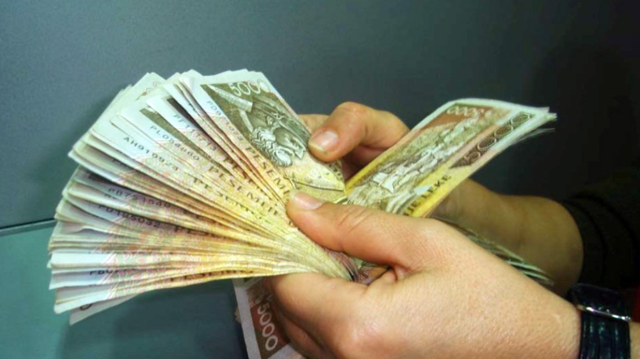
The increase of the key interest rate by the Bank of Albania on Wednesday seems to have started to give the first signals of reflection in the financial market.
On Thursday, the lek appreciated by about 0.3 points in the euro exchange rate. The euro was exchanged at 122.48 lek on Thursday, marking the lowest level since March 2.
Market experts say that yesterday's decision of the Bank of Albania may have had an impact in favor of the local currency in the foreign exchange rate. Theoretically, the key interest rate level is one of the factors influencing the exchange rate between different currencies. The increase in the key rate represents a higher price of injecting money into the system by the central bank and implies an action in the monetary tightening direction. As this action tightens the supply of the respective currency, the increase of the base rate affects its appreciation against other currencies.
In this case, the increase of the base rate of the lek against the euro deepens the gap in the base rate between the two currencies. The European Central Bank has not yet taken any steps towards raising interest rates, despite rapidly rising inflation rates in the Eurozone. To date, the ECB is the last of the largest central banks not to take steps towards monetary tightening, while counterpart institutions such as the Bank of England or the Federal Reserve have already undertaken base rate hikes.
This different approach has been one of the main factors that have influenced the depreciation of the euro in the exchange rate with other important global currencies in the last two months. The Bank of Albania's move to raise the key interest rate seems to be having such an effect on the exchange rate between the lek and the euro.
The increase in the base rate also makes the lek more attractive as a currency for keeping savings. In theory, the expectation of higher returns on deposits (and other financial investments) may push more individuals or entities to shift their savings from foreign currency to lek. This would increase the demand for lek and exert influence on the appreciation of the local currency.
Megjithatë, ekspertët mendojnë se është vështirë të thuhet në çmasë kjo lëvizje do të ketë ndikim afatgjatë në kursin e këmbimit, duke qenë se tregu valutor shqiptar është një treg i vogël dhe i ndikuar kryesisht nga raportet e brendshme të kërkesës dhe ofertës, më shumë se nga faktorë të gjerë konjukturalë. Elementi kryesor në ecurinë e kursit të këmbimit ngelet pozicioni i jashtëm i ekonomisë i shprehur në Bilancin e Pagesave. Shtrenjtimi i lëndëve të para dhe produkteve energjetike ka shtuar rreziqet për thellim të deficitit tregtar në mallra, megjithatë shpresat janë që dalja graduale nga pandemia do të ketë një efekt pozitiv në bilancin e shërbimeve dhe sidomos në sektorin e turizmit.
Mbiçmimi i monedhës i ndikon në mënyrë të ndryshme subjekt të ndryshme në ekonomi. Një mbiçmim i lekut ndikon negativisht tek ato subjekte që kanë të ardhura në valutë dhe shpenzime në lekë, kryesisht eksportuesit e mallrave dhe të shërbimeve. Një mbiçmim i lekut dëmton, të paktën pjesërisht, edhe depozituesit që i mbajnë kursimet e tyre në valutë të huaj, kryesisht në euro. Por, nga ana tjetër një monedhë vendase më e fortë favorizon subjektet që importojnë mallra dhe shërbime nga jashtë dhe huamarrësit që kanë detyrime në valutë të huaj, ndërkohë që të ardhurat i përfitojnë në lekë.
Although the direct impact of the exchange rate may be different for different actors, in the current situation the balance of factors suggests that the interest of the Albanian economy may be more for a local currency in strong positions. This will help to alleviate some of the very high inflationary pressures from foreign commodity markets. The analysis of the Bank of Albania has shown that, at least until the last quarter of last year, the appreciation of the lek in the foreign exchange rate has partially softened the reflection of the imported inflation in the Albanian economy./Monitor
Latest news



Dance with the mask of evil
2025-06-20 21:11:50
Matura 2025, Albanian Language and Literature exam grades published
2025-06-20 20:40:37
Tabaku: Albania has African wages and European prices
2025-06-20 20:33:02


UK temporarily withdraws embassy staff from Iran
2025-06-20 19:16:02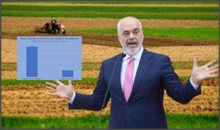
How Albania became the country with the highest cost of living
2025-06-20 18:49:11


Hail and strong storm "grab" Belshi
2025-06-20 17:35:56

School closures increase parents' financial burden during the summer
2025-06-20 16:49:19
KAS dismisses SP over vote revaluation
2025-06-20 16:34:02



Albanian language included in official communications of New York public schools
2025-06-20 15:08:35
Accident in Italy, 46-year-old Albanian dies (NAME)
2025-06-20 14:50:50
Kosovo in electricity crisis, KESCO appeals to citizens: Save electricity!
2025-06-20 14:29:55
Meta: Disinformation against me, a product of government propaganda!
2025-06-20 14:08:44
The American obsessed with Albania, a country he would write an anthem for
2025-06-20 13:39:41
Berisha: SPAK is throwing candy to protect Gys Agas and Rama!
2025-06-20 13:30:02
"Elections an electoral crime"/ Berisha warns of protests at home and abroad
2025-06-20 13:09:59


Reported missing a day ago, elderly man found dead in Peqin
2025-06-20 12:19:21
Drug gangs in Tirana cracked down, 24 arrested, 8 wanted (NAMES)
2025-06-20 11:57:38


You win the elections like Edi Rama - but justice won't allow you in Switzerland
2025-06-20 11:10:28
Bullets fired at Arjan Ndoji's former driver's bar, 15 shells at the scene
2025-06-20 10:48:02
Vokshi reports Vilma Nushi to SPAK, files lawsuit for "Check Up"
2025-06-20 10:31:54
Requests release from prison, hearing for former president Meta ends today
2025-06-20 10:15:50

Bullets fired at a bar in Fushë Krujë, police surround the area
2025-06-20 09:34:34


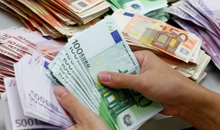
Foreign exchange, how much foreign currencies are bought and sold today
2025-06-20 08:40:20

Clear skies and cloudy skies, today's weather forecast
2025-06-20 08:00:26
Morning Post/ In 2 lines: What mattered yesterday in Albania
2025-06-20 07:50:05
Noka reveals Rama's condition for Veliaj to resign
2025-06-19 22:53:43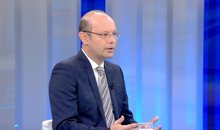
Vote recount in Tirana, Kaso: We did not have the 14th mandate as our objective
2025-06-19 22:44:53




Noka: Policemen were running from morning to night for SP votes
2025-06-19 21:31:03
The three zodiac signs that will be disappointed in love this month
2025-06-19 21:18:48
Accused of murder due to blood feud, 48-year-old arrested in England
2025-06-19 21:06:57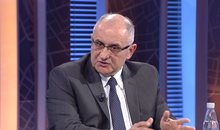
Vasili releases video: Tirana-Kashar segment full of gravel, no workers around!
2025-06-19 21:00:48

Tirana without a coach, four names considered for the white-and-blue bench
2025-06-19 20:21:12

Rinderpest/ A new outbreak appears in Shkodra, 200 sheep affected
2025-06-19 20:01:50

Scientists raise the alarm: Earth risks exceeding the 1.5°C warming limit!
2025-06-19 19:37:44

"Fiscal Peace" without consultation with the EU, Brussels concerned
2025-06-19 19:05:23
Trump signs executive order extending TikTok ban in US for another three months
2025-06-19 19:03:35
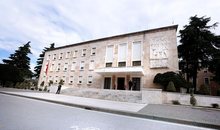
A special Task Force on immigration is established in cooperation with Italy
2025-06-19 18:23:58
Drug trafficking gang busted in Italy, 25 people arrested, including Albanians
2025-06-19 18:18:33
AMF denounces a suspicious cryptocurrency investment platform
2025-06-19 18:06:07


Technology as a tool of war between Israel and Iran
2025-06-19 17:27:54




EU divided over Israel's right to bomb Iran
2025-06-19 16:10:42

Analysis/ How is Russia spreading propaganda in the Albanian language?
2025-06-19 15:49:18
Session in the Criminal Court, MP Qani Xhafa is fined
2025-06-19 15:33:30
Members of criminal organizations! 3 Albanians extradited from Dubai today
2025-06-19 15:20:04

Lufta/ Zelenskyy bën thirrje për rritjen e presionit ndaj Rusisë
2025-06-19 14:56:02

Netanyahu warns Iran after attacks on Israeli hospital
2025-06-19 14:34:53

Attempted to enter Albania with false documents, 25-year-old arrested
2025-06-19 14:18:20
Psychology explains what happens in the brain of a person contemplating suicide
2025-06-19 14:01:25

These are the coldest zodiac signs
2025-06-19 13:45:18



Albanian man dies in hospital after accident in Italy
2025-06-19 13:02:45


Berisha to gather political leaders tomorrow
2025-06-19 12:32:23

Iran confirms meeting with representatives of Britain, Germany and France
2025-06-19 12:11:33


